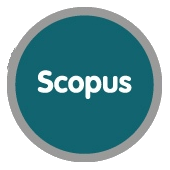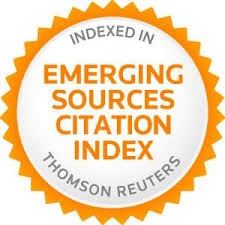La formación didáctico matemática del orientador como problema de investigación
Resumen
Palabras clave
Referencias
D’Ambrosio, U. (a): Etnomathematics and its Place in the History and Pedagogy of Mathematics. For the Learning of Mathematics, 5, nº 1, pp. 44-48.Montreal.
D'Ambrosio, U. (1994). Cultural framing of mathematics teaching and learning. En: R. Biehler, R.W. Scholz, R.Straser y B. Winkelmann (Eds.), Didactics of Mathematics as a Scientific Discipline (pp. 443-455). Dordrecht: Kluwer A. P.
BISHOP, A. (1988c): Mathematics Education in Its Cultural Context. En A. Bishop, (Ed.) Matematics education and culture. Londres: Kluwer Academic Publishers.
http://dx.doi.org/10.1007/978-94-017-2209-4_4
Bishop, A. J. (1994). Cultural conflicts in Mathematics Education: Developing a research agenda. For the Learning of Mathematics, 14, 2, pp. 15-18.
Borba, M. C. (1990). Ethnomathematics and Education. For the Learning of Mathematics, 10, 1, Febrero, pp. 39-43.
EISENHART, M. A. (1988). The Ethnographic research tradition and Mathematics education research. Journal for Research in Mathematics Education. 19, 2, pp. 99-114. http://dx.doi.org/10.2307/749405
Gerdes, P. (1993). Survey of current work on Ethnomatematics. Reunión anual de la American Association for the Advancement of Science. Boston.
Lakatos, I. (1981). Matemáticas, ciencia y epistemología. Madrid: Alianza Universidad.
Oliveras, M. L. y grupo ALGABAR (1992). La connaissance mathématique et les contextes artisanaux. En I.C.M.E. VII.Québec. p. 278.
Oliveras, M. L. (1995). Etnomatemáticas. Formación de profesores e innovación curricular. Editorial COMARES. Granada. ISBN 84-8151-241-9.
Popkewitz, T. S. (1988). Institutional Issues in the Study of School Mathematics: Curriculum Research. En A. Bishop (Ed.) Mathematics education and Culture. Londres: Kluwer Ac. Pub.
Toulmin, S. (1977). El uso colectivo y la evolución de los conceptos. Madrid: Alianza.
White, L.A. (1976). El lugar de la realidad matemática: una referencia histórica. En J.R. Newman (Comp.) Sigma. El mundo de las matemáticas. V. 6. Barcelona: Grijalbo.
Wilder, R. (1986). The cultural basis of mathematics. En T. Tymoczko. New directions in the philosophy of mathematics. pp 185-199.
Wittgenstein, L. (1980). Tractatus Logico-Philosophicus. Madrid: Alianza Universidad.
Wittgenstein, L. (1981). Investigaciones filosóficas. Barcelona: Crítica.
Woods, P. (1987). La escuela por dentro. La etnografía en la investigación educativa. Barcelona: Paidós.
Wright Mills, C. (1977). L’imagination sociologique. París: Ed. François Maspero.
Zeichner, K.M. (1987). Enseñanza Reflexiva y Experiencias del Aula en la Formación del Profesorado. Revista de Educación, 282, pp. 161-189.
Enlaces refback
- No hay ningún enlace refback.


